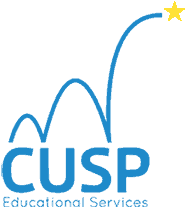By Andrea Ditter-Middleton

As the cool winds of September remind us, the new school year is finally here and, with it, new opportunities and challenges for students of all types. However, for college students with learning disabilities getting out a light coat and buying new books are not the only hallmarks of a new academic year. Especially for new freshman and transfer students, it’s important to take time now, when the semester is new and everyone’s grade is the same, to set up systems and develop habits that will promote success. In fact, regardless of what challenges you face, taking a proactive approach to your studies on Day 1 of college will only benefit your education and your stress levels in the long run. Let’s take a quick look at three things you can do right away to set your semester on the pathway for success:
Get Help Right Away
Your number one source for accommodations and assistance in college is your learning coach or disabilities specialist. Unlike regular tutoring centers, learning and disability specialists will have the tools and knowledge to help you in ways that are unique to your struggles and consider your talents. This includes helping you and infer and reason in the way that college work requires, which may include interpreting assignments and readings as well as improving study skills in a less rigid environment.
Stay Organized
Organization is critical for all students, but when you have a learning disability, managing your time is critical because tasks may take longer or require different approaches. One good way to do this is to spend 15 minutes in the morning or the night before each day drawing a “map” of your time. Further, include as part of this map something called a “next step action plan.”
Next step thinking asks that you do more than just identify a task, say “history homework.” Instead, you need get specific, and consider the task as well as “next step.” So, you would plan to “read chapter 1 for history and then answer questions 1-6.” This helps keep you focused and prevents idle time that may cause you to get distracted or go off topic.
Design Your Study Environment Intentionally
Whether you live at home, alone, or with a roommate, the space you occupy outside of class will set the tone for the work you will get done inside it. Ideally, you should have a designated “study area” that includes a desk, good lighting, and a computer or other adaptive technology. This area should be free of distractions such as distracting outside noise or the TV, though if you like listening to music while you work that’s fine. Natural light is also a bonus as it can improve your mood and performance[1] so try to station yourself near a window.
A Semester of Success
Whether you’re a freshman or a senior, the beginning of the academic year always comes along with anticipation and some nerves. As a student with learning disability, this may be heightened even further. With simple tips like these and help from services like CUSP, getting started on the right foot in school is simpler than you think.
[1] https://www.psychologytoday.com/blog/the-athletes-way/201306/exposure-natural-light-improves-workplace-performance
